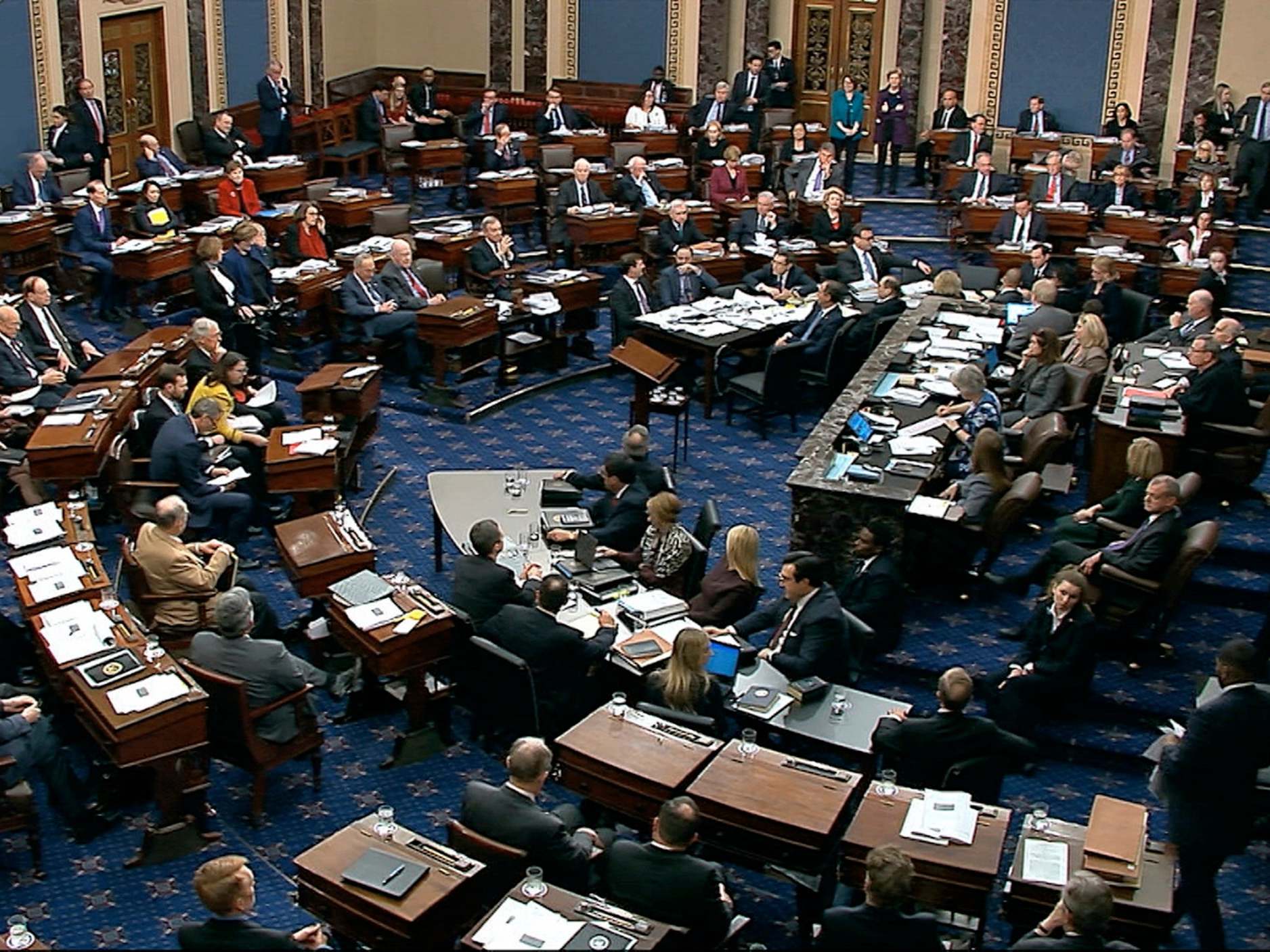The Senate impeachment trial is supposed to be a done deal. So what’s an opinion editor to do?
Everyone thinks they know how it’s going to go in the Senate this week. But the truth is always a little more interesting than it seems

This week, Donald Trump’s impeachment trial began in the Senate – and nobody could bring themselves to get excited. It’s a done deal, everyone complained: there is a sizeable majority of Republicans in the Senate so there’s no way the president can be found guilty and actually removed from office. In the same vein, because of the large Democrat majority in the House of Representatives, it was hardly a surprise when the lower chamber voted for impeachment and sent its articles up to the Senate.
What should we take from this long and drawn-out impeachment process, then, if it’s really just about going through the motions? As Voices editor of The Independent’s US content, it’s my job to parse out the interesting angles and the little-known implications of what’s happening in Washington DC, even when it seems like it’s predictable. When I came in on Monday, I had an initial conversation with Noah Berlatsky, one of my writers, who told me that he wasn’t interested in following the granularities of the impeachment trial – but he was interested in whether or not the US would get a fair election in November. The way Republicans act during the trial, he argued, and the narrative they built would tell us a lot about Trump’s strategic moves for re-election in the months to come. In a Voices piece here, Noah elaborates on that premise, and he makes a convincing argument.
Something else to bear in mind is what this trial can tell us about the Republican Party’s internal machinations. Mitch McConnell has already said, proudly, that he doesn’t intend to be an independent, objective juror during the trial; many have accused him of planning the Senate trial hand-in-glove with the White House. During Bill Clinton’s impeachment trial, the Democrats and Republicans worked closely together to work out a process which seemed palatable to the American people; this time round, everything is much more partisan and divided. McConnell has hitched his wagon to Trump – he has made that obvious. But other moderate Republicans, such as Susan Collins of Maine, are worried that the president’s impeachment trial will make swing voters less likely to back him again in November. Collins and some of her compatriots are up for re-election in their own states soon, and they reportedly broke with McConnell during the first day of the Senate trial to ask for amendments to the hard-line rules he set. They want to be seen as fair – fairer than someone who trumpets his lack of objectivity – and they want to be able to separate from the Trump administration to preserve their careers in the long term. Though they will never openly support the impeachment of a Republican president, moderate Republicans I’ve been speaking to have emphasised how much they want to be able to work alongside, rather than against, Democrats, and how tired they are of the current way of doing things. Josh Eisen, a self-described “progressive Republican” who is standing for election in liberal New York, outlined such thoughts in a piece for us at Christmas.
Of course, I also have regular Voices writers who enjoy the thrill of the trial, its bombastic public speeches and its closed-door intrigue, and what it says about the state of America today. Ahmed Baba, my go-to DC contributor whose boundless enthusiasm for due process in the States knows no bounds, is currently glued to the trial and scheduled to write his analysis for us over the next few days. Ahmed, who also covered the Mueller report for us as well as the big moments of the House impeachment hearing including Ambassador Gordon Sondland’s testimony, excels in pointing out to me, in real time, what’s about to go down as a historical moment. Sometimes it’s the sentences which go completely over your head when you’re an editor at a newsdesk listening out with one ear – and that’s exactly why having political obsessives like Ahmed on the ground in DC is so important.
Elsewhere, Trump is keeping us busy with his self-congratulatory claims at Davos and his main 2020 electoral strategy: going hard on the economy. Luckily, I also have an economist on hand to fact-check the remarks the president is making in Switzerland while everyone else is glued to the proceedings in Washington. When I spoke to Tim Mullaney yesterday morning about Trump’s claims during his Davos speech and on CNBC about the strength of the American economy, he had one thing to say: “Basically none of that is true.” He then proved it, in another Voices piece that makes for urgent reading.
As you can tell, the news cycle in the US is giving us editors and reporters in the New York City bureau plenty to work with this year. Though the newsroom is hectic, I wouldn’t have it any other way: it feels like we’re watching something unfold which will feature in all the history books, and I can’t wait to see what happens next.
Yours,
Holly Baxter
US Voices editor
Join our commenting forum
Join thought-provoking conversations, follow other Independent readers and see their replies
Comments